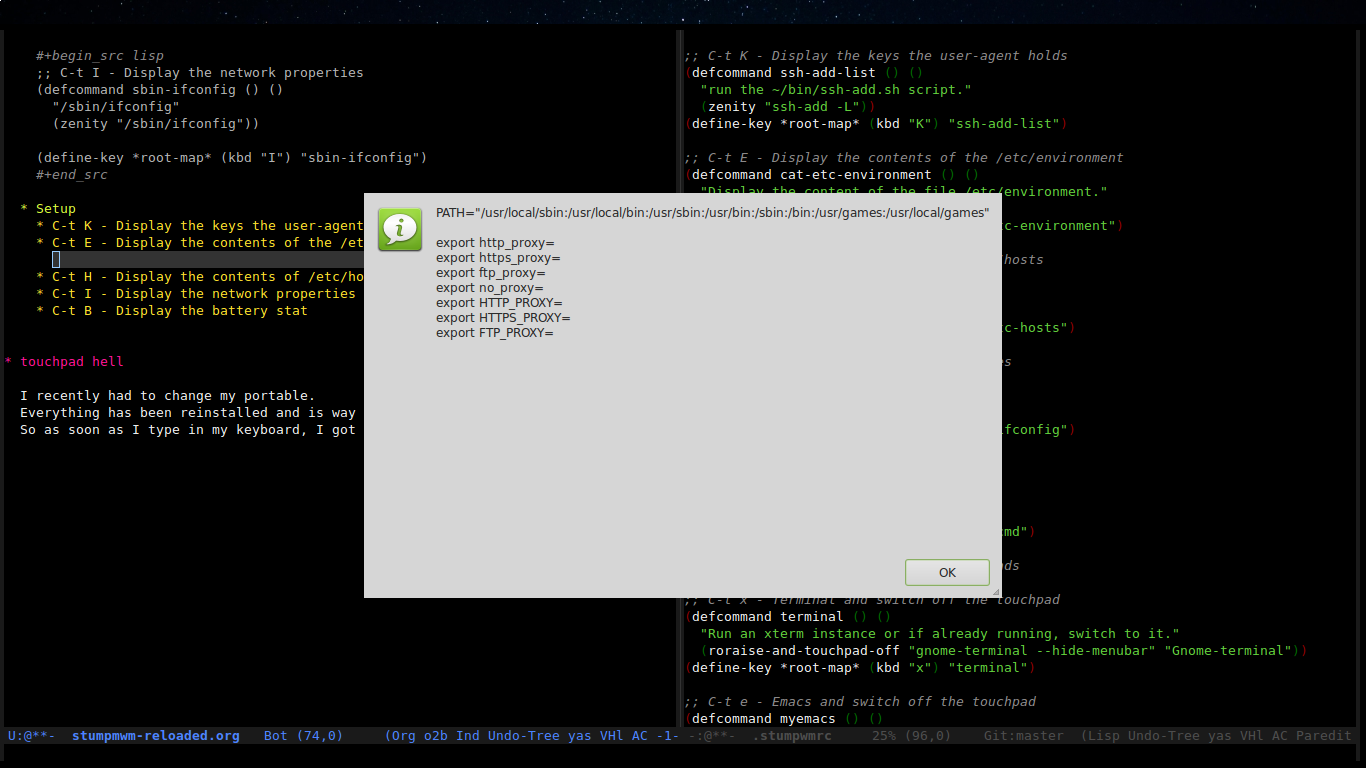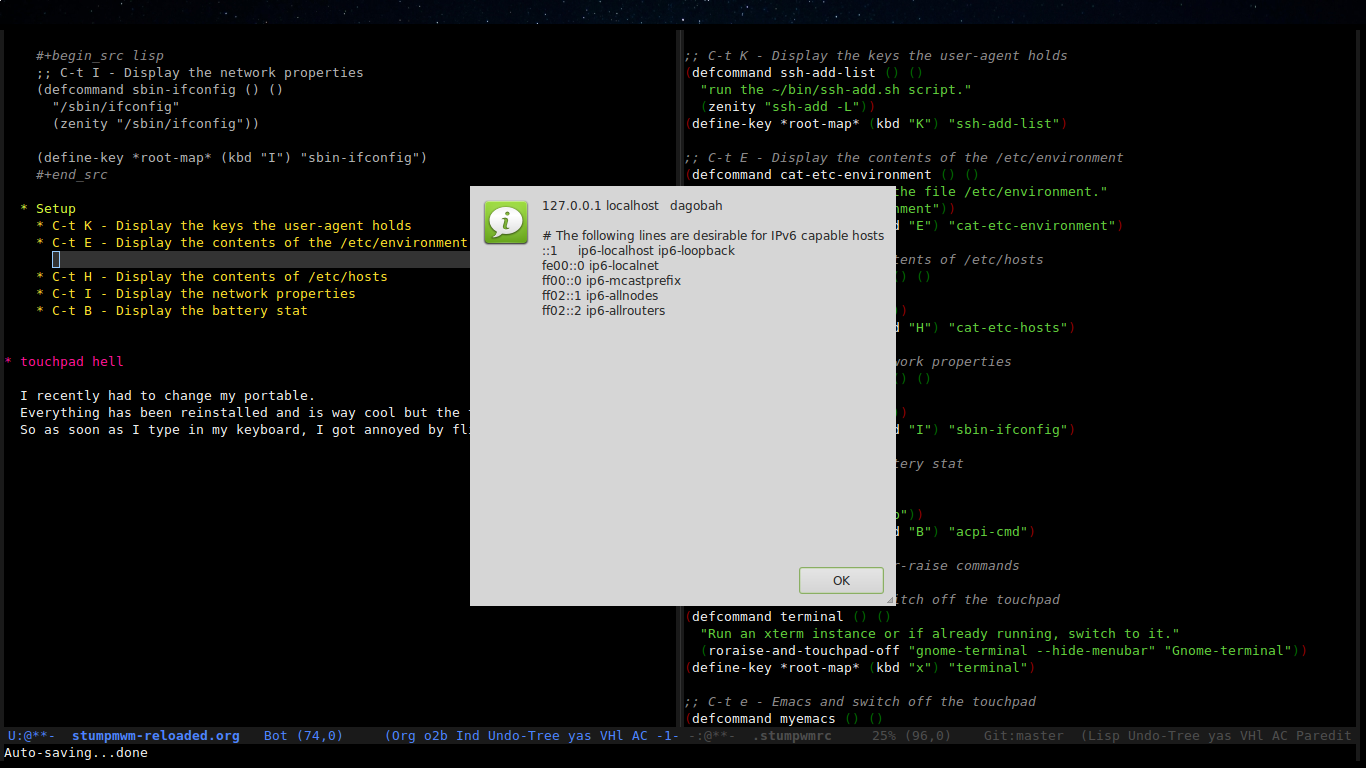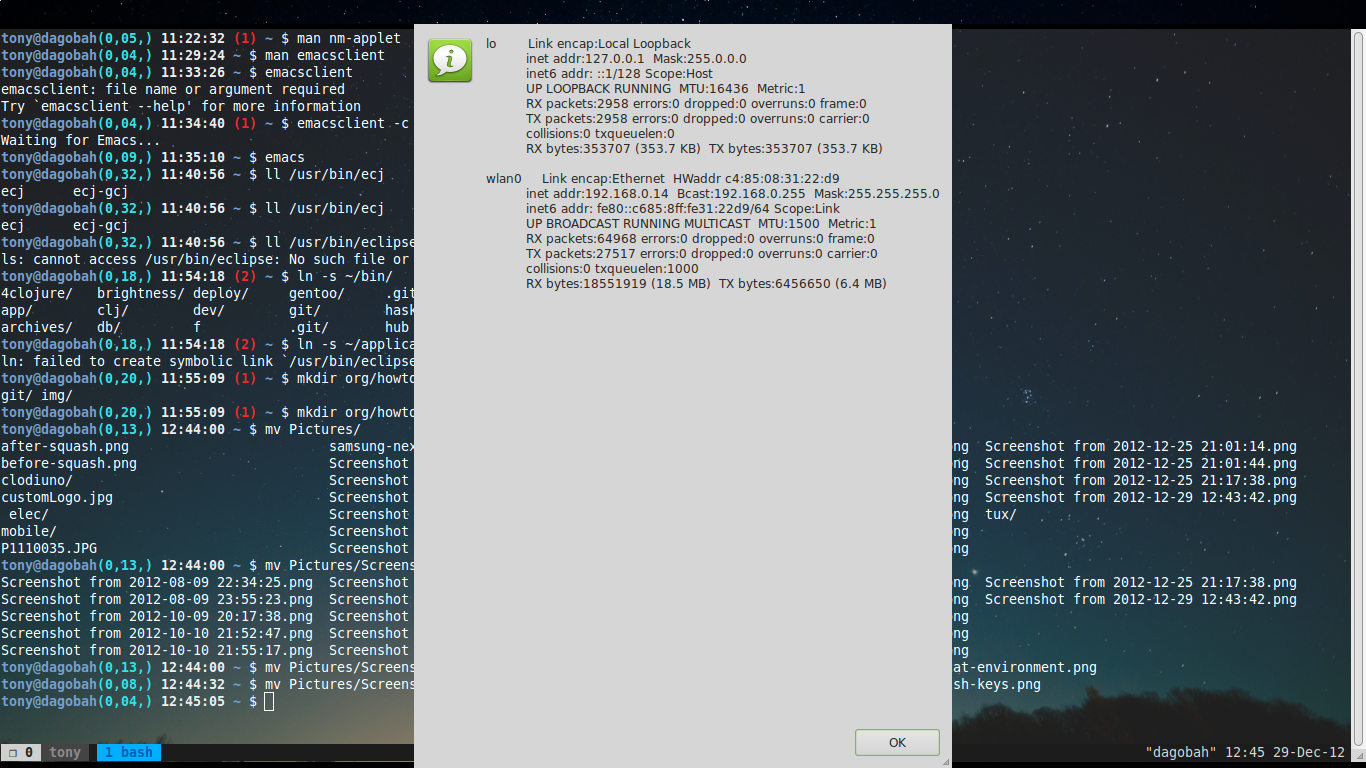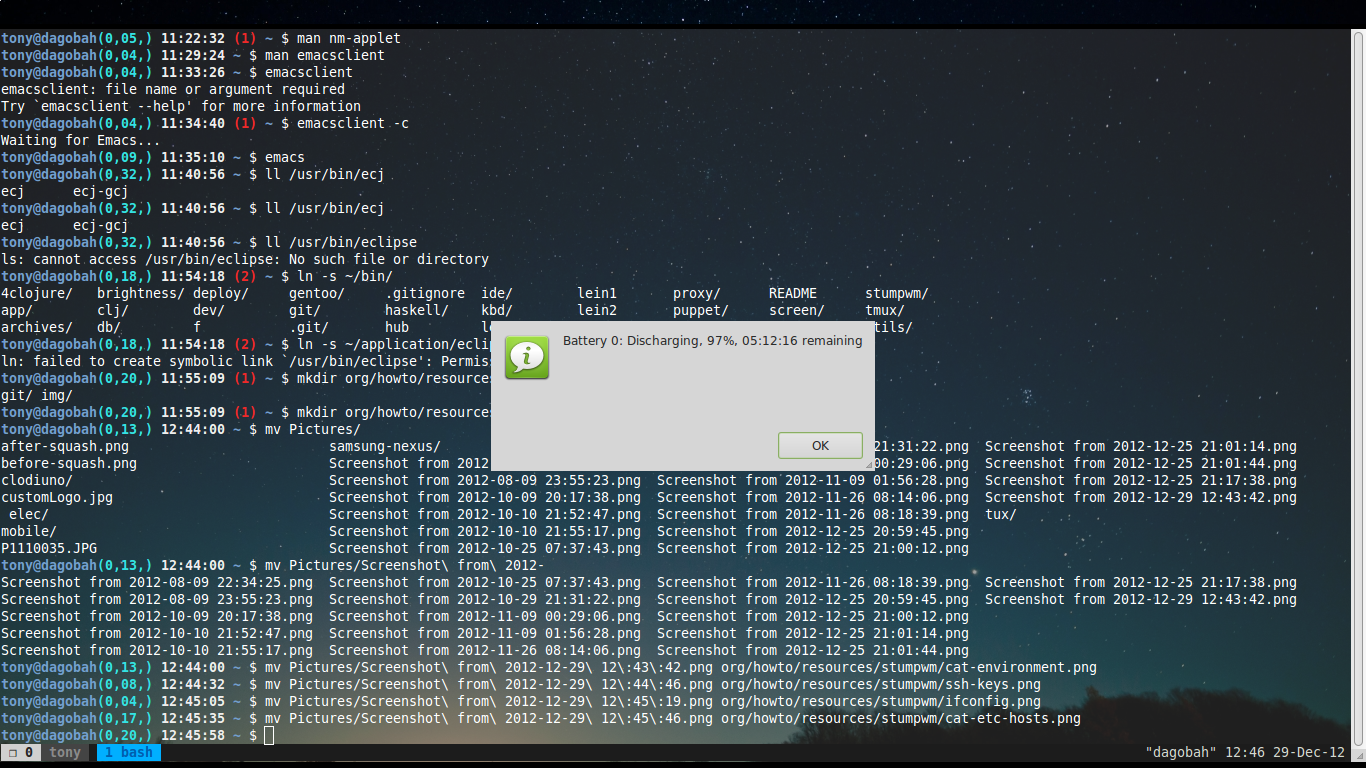It has been some time now since i talked about stumpwm.
I wanted to do an update since I added/modified/upgraded some stuff in my setup.
But first of all, let me tell you something, stumpwm is really a great tool. After using it for almost 1,5 year, I did not regret one moment, It's:
- like emacs but for managing your windows :D
- highly configurable
- lightweight (from a battery standpoint, it's kinda cool :D)
In this post, I will show how I use zenity to display the result of bash commands I use often.
pre-requisite
The package zenity is available in the ubuntu repository:
sudo aptitude install zenity
Why?
I often need to see the content of some files or some setup in my environment:
/etc/hosts/etc/environment/sbin/ifconfigssh-add -L- etc…
I already knew zenity but did not use it a lot.
In my case, zenity permits to display stuff inside small pop-up window. I also wanted to be able to copy/paste from it.
So it was time for some tinkering.
How?
My snippet of code that permits to wrap calls to zenity:
(defun run-shl (&rest cmd) "A simpler command to run-shell-command with multiple params" (run-shell-command (apply #'concatenate 'string cmd))) ;; (defcommand name (args) (interactive-args) "doc-string" (body)) ;; wrapper around the zenity cli (defcommand zenity (command) () "Wrap a call to the cli and output the result into a zenity window" (run-shl "zenity --info --text \"$(" command ")\""))
- run-shl
Function to help in reading the shell command we want to launch.
- zenity
Main function, wrap the call to the zenity shell command and tell it to display the result.
Example
With a good separation of concern, we can now call the command we want to display its result:
(defcommand sbin-ifconfig () () "/sbin/ifconfig" (zenity "/sbin/ifconfig"))
And binds the key, here I to it:
(define-key *root-map* (kbd "I") "sbin-ifconfig")
Setup
C-t K - Display the keys the user-agent holds
code
(defcommand ssh-add-list () () "run the ~/bin/ssh-add.sh script." (zenity "ssh-add -L")) (define-key *root-map* (kbd "K") "ssh-add-list")
Result
I won't show anything here, just know that I display the result of the command ssh-add -L
-L Lists public key parameters of all identities currently represented by the agent.
C-t E - Display the contents of the /etc/environment
code
(defcommand cat-etc-environment () () "Display the content of the file /etc/environment." (zenity "cat /etc/environment")) (define-key *root-map* (kbd "E") "cat-etc-environment")
result

C-t H - Display the contents of /etc/hosts
code
(defcommand cat-etc-hosts () () "cat /etc/hosts" (zenity "cat /etc/hosts")) (define-key *root-map* (kbd "H") "cat-etc-hosts")
result

C-t I - Display the network properties
code
(defcommand sbin-ifconfig () () "/sbin/ifconfig" (zenity "/sbin/ifconfig")) (define-key *root-map* (kbd "I") "sbin-ifconfig")
result

C-t B - Display the battery stat
code
You have to install the package acpi on your machine first.
(defcommand acpi-cmd () () "acpi -b" (zenity "/usr/bin/acpi -b")) (define-key *root-map* (kbd "B") "acpi-cmd")
result

